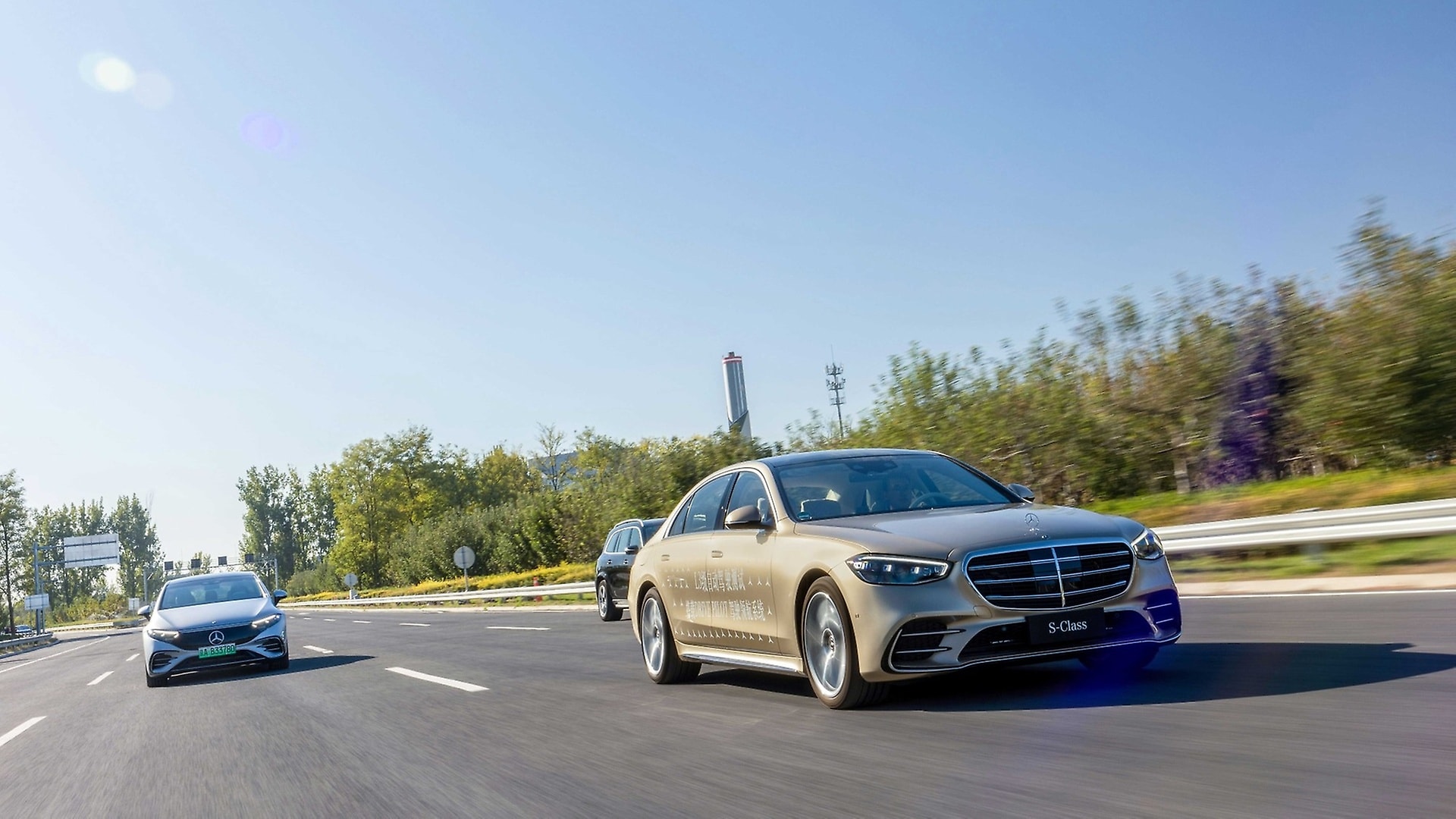December 18, 2023 – On December 16, Mercedes-Benz became one of the first automakers to receive approval for the conditionally automated driving (Level 3) highway road test license in Beijing.
,xPosition=0,yPosition=0.5)
Automated test driving
Mercedes-Benz AG
Mercedesstraße 120
70372 Stuttgart
Germany
Phone: +49 7 11 17-0
E-Mail: dialog@mercedes-benz.com
Please send queries about content on this website to any contact. You can address your concerns to us in English and your respective national language.
Represented by the Board of Management:
Ola Källenius, Chairman; Jörg Burzer, Mathias Geisen, Olaf Schick, Michael Schiebe, Britta Seeger, Oliver Thöne, Harald Wilhelm
Chairman of the Supervisory Board: Martin Brudermüller
Court of Registry: Stuttgart; commercial register no. 762873
VAT ID: DE 32 12 81 763
All information about our products can be found on your country-specific Mercedes-Benz product page.
,xPosition=0,yPosition=0.5)
Automated test driving
December 18, 2023 – On December 16, Mercedes-Benz became one of the first automakers to receive approval for the conditionally automated driving (Level 3) highway road test license in Beijing.
Mercedes-Benz will begin conditionally automated driving system testing on designated highways in Beijing while always adhering to its ‘safety first’ principle. The company actively cooperates with relevant authorities in developing its Level 3 systems for China and aims to provide Chinese customers with a safe and reliable automated driving experience.
Mercedes-Benz has consistently been a pioneer in automated driving. It started in 1986 with adaptive cruise control testing. Today, it is the only car manufacturer in the world with the world's first internationally valid system approval for conditionally automated driving and a SAE Level 4 driverless parking system in place. In China, Mercedes-Benz has been conducting proving ground tests of Level 3 systems for years.
The advantages for the customer are clear: during conditionally automated driving, the activated DRIVE PILOT allows the driver to take their mind off the traffic and focus on certain secondary activities, be it communicating with others via In-Car Office, browsing the web or relaxing while watching a movie. Mercedes-Benz introduced DRIVE PILOT in Germany as an optional conditionally automated driving system in the S-Class and the all-electric EQS sedan in 2022. In the U.S., the production-ready version of DRIVE PILOT has already made its on-road debut in California and Nevada with a limited fleet of Level 3 equipped EQS Sedans.
As far as system design is concerned, Mercedes-Benz is taking a step-by-step approach focused on safety. By the end of this decade, the manufacturer wants to expand the availability on the freeway to up to 130 km/h. In the meantime, Mercedes-Benz wants to offer intermediate steps. For Germany, the next move will be a system which can do 90 km/h when following a vehicle upfront on the German highway.

In China, Mercedes-Benz integrates its global R&D experience with a local R&D team with strong capabilities, and through cooperating with local partners and adapting to local regulations to deliver tailored products for Chinese customers. For the development and approval of the conditionally automated driving system, engineers, lawyers, compliance managers, data protection experts and ethics experts worked together as an interdisciplinary team. To make the Level 3 automated driving system more adaptable to China's infrastructure and traffic conditions, the local R&D team has been deeply involved from the early stages of relevant global development. Since 2021, Mercedes-Benz has undertaken proving ground testing and validation in China to continuously enhance Level 3 system performance. The focus of local R&D efforts includes adapting the system to China's unique road signs, markings, construction zones, special lanes such as bus lanes and tidal lanes, and continually optimising logic, algorithms and parameters for scenarios like vehicle cutting-in.